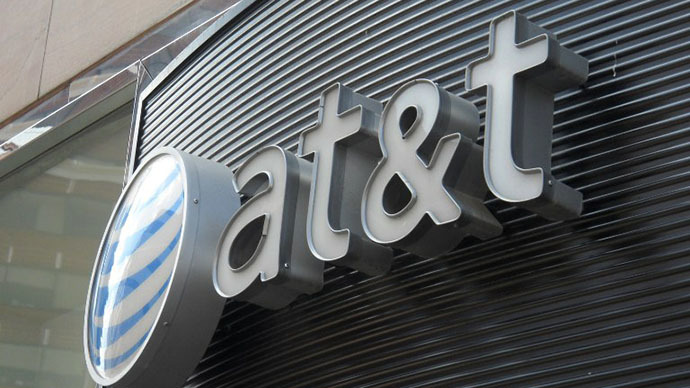AT&T joins Verizon, Facebook in selling customer data

AT&T has announced that it will begin selling customers’ smart phone data to the highest bidder, putting the telecommunications giant in line with Verizon, Facebook and other competitors that quietly use a consumer's history for marketing purposes.
The company claims its new privacy policy, to be updated within
“the next few weeks,” exists to “deliver more relevant
advertising” to users based on which apps they use and their
location, which is provided by GPS-tracking. Apparently
recognizing the natural privacy concerns a customer might have,
AT&T assured the public that all data would be aggregated and
made anonymous to prevent individual identification.
A letter to customers, for instance, described how someone
identified as a movie fan will be sent personalized ads for a
nearby cinema.
“People who live in a particular geographic area might appear
to be very interested in movies, thanks to collective information
that shows wireless devices from that area are often located in
the vicinity of movie theaters,” the letter states. “We
might create a 'movie' characteristic for that area, and deliver
movie ads to the people who live there.”
A June 28 blog post from AT&T’s chief privacy officer Bob Quinn said the new policy will focus on “Providing You Service and Improving Our Network and Services,” but the online reaction has been overwhelmingly negative, with many customers looking for a way to avoid the new conditions.
“You require that we allow you to store a persistent cookie of
your choosing in our web browsers to opt out,” one person
wrote. “No mention of how other HTTP clients, such as email
clients, can opt out. If you really did care about your
customers, you would provide a way for us to opt out all traffic
to/from our connection and mobile devices in one easy
setting.”
One problem for any customer hoping for a new service is the lack of options, smartphone or otherwise. Facebook, Google, Twitter and Verizon each store consumer data for purposes that have not yet been made clear. And because of the profit potential that exists when a customer blindly trusts a company with their data, small Internet start-ups, including AirSage and many others, have developed a way to streamline information into dollars.
The nefarious aspect of AT&T’s announcement is underscored by
the recent headlines around the National Security Agency, which
has spent years has compelling wireless corporations to hand over
data collected on millions of Americans. Unfortunately for the
privacy of those concerned, AT&T’s new policy may only be a
sign of things to come.
“Instead of merely offering customers a trusted conduit for
communication, carriers are coming to see subscribers as sources
of data that can be mined for profit, a practice more common
among providers of free online services like Google and
Facebook,” the Wall Street Journal wrote about the matter in
May.














